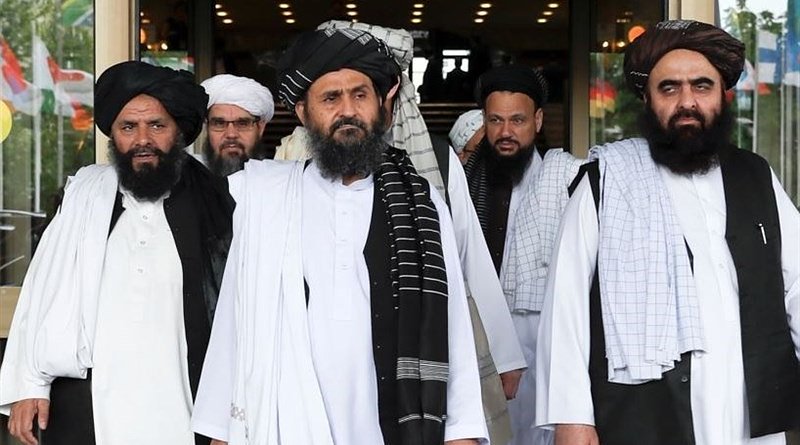Afghan Conundrum And Plausible Strategies Under Biden Administration – Analysis
A conditional peace deal between the US and the Afghan Taliban was signed in February 2020, which nonetheless, could not stop the Taliban from launching and intensifying attacks against the Afghan Security Forces as the group still believed battlefield successes would determine the final outcome of the ongoing peace exercise.
On the other side, while confronting the Afghan Taliban, the second half of 2020 witnessed cases of civilian casualties swelling in view of more frequent airstrikes conducted by the Afghan security forces with the assistance of the US air power. In September, intra-Afghan peace talks – a condition of the US-Taliban peace deal generated new hopes that an understanding would emerge through deliberations between the Afghan government representatives and the Taliban in the Gulf state of Qatar which would end up in designing the modalities of future governance.
However, this encountered hiccups from the beginning as the Taliban resisted the very nomenclature that the other party to the negotiation used – the official name of the Afghan government, “Islamic Republic of Afghanistan”. The Taliban not only questioned the legitimacy of the Afghan government, it insisted the talks to be held under the banner of intra-Afghan dialogue and negotiations.
Later, even while both parties reached agreement on the rules and procedures for the talks on December 2, 2020, agreement as regards the substantive issues appeared a very complicated and next to impossible exercise. For instance, the Taliban’s insistence that the Hanafi School of Islamic jurisprudence be the guiding principle for all decisions as regards the future of the country has been resisted by the government in view of its negative repercussions on the rights of minorities.
Agreements pertaining to permanent cease-fire and power-sharing arrangement seem inconceivable in view of the trust deficit between the two parties and Afghan President Ashraf Ghani being skeptical of his own survival in power. The President appeared apprehensive that the Taliban might win away the opposition leaders and form an interim government.
Further, the Afghan government entered into negotiation from a position of weakness possibly anticipating quick reduction of American troops in the country, thus it could not be expected to negotiate in the interests of peace and stability of the country rather it may pander to the hard-line demands of the Taliban. On the other side, the Afghan Taliban continued to resort to violence as a tactic in the hope that the peace negotiations would tilt in their favor and the war-fatigued US would withdraw sooner or later by making big concessions in favor of the group.
Plausible Afghan Strategies
In this larger context, it is not far-fetched to believe that the outgoing Trump administration’s decision to further reduce US troops in Afghanistan is likely to be reviewed by the incoming Biden administration in view of perpetration of violence by the Taliban resorted to as a tactic and continued dependence of Afghan forces on American air support, intelligence and logistics. The new administration may be propelled to develop strategies either to rework the old agreement with the Taliban or persuade or coerce the group to meet key conditions of the agreement including pledges to reduce violence and to prevent the Al-Qaeda network from operating on Afghan soil.
However, some experts still believe that the incoming administration’s strategy may be just to continue phased withdrawal of troops from Afghanistan irrespective of success and failure of peace talks so that the administration would be able to focus on areas of more strategic significance such as the Indo-Pacific region. This is the path that the Trump administration was already committed to. Such line of thinking is propelled by the protracted nature of Afghan insurgency which has taken a toll on American resources as well as will power and legitimacy of the war has been facing serious challenges at home. Thus, the new administration may not choose to go offensive in order to be able to coerce the Taliban to accept the key conditions of the deal.
Some experts believe that the incoming administration may still be inclined to maintain a strategic presence in the war-torn country to keep supporting the Afghan security forces which could quickly be overpowered by the Taliban once the US leaves them to fend for themselves.
The other plausible and effective strategy for the Biden administration may be to work with other stakeholders and regional powers in order to bring in their contacts with and influences over the Taliban and persuade the group to accept the key conditions of the deal with the US and carry forward talks with the Afghan government in the interests of peace and stability of Afghanistan.
The incoming administration may also prefer privatization of war to underscore battlefield successes and coerce the Taliban to accept the deal with the US as well as force it to negotiate with the Afghan government in the interests of peace and stability of the country. For instance, some experts believe that controversial US defense firm, Blackwater, could return in Afghanistan after Biden administration assumes office. This strategy has relevance as it can fulfill the war objectives at the behest of Washington, absorb pressures from public to end the war abruptly and appease the war contractors. However, such a strategy can backfire in view of the possibilities of rise in civilian deaths as the war contractors are not bound by the similar and strict code of conduct like army and this can turn public opinion in the US and outside against the strategy.

